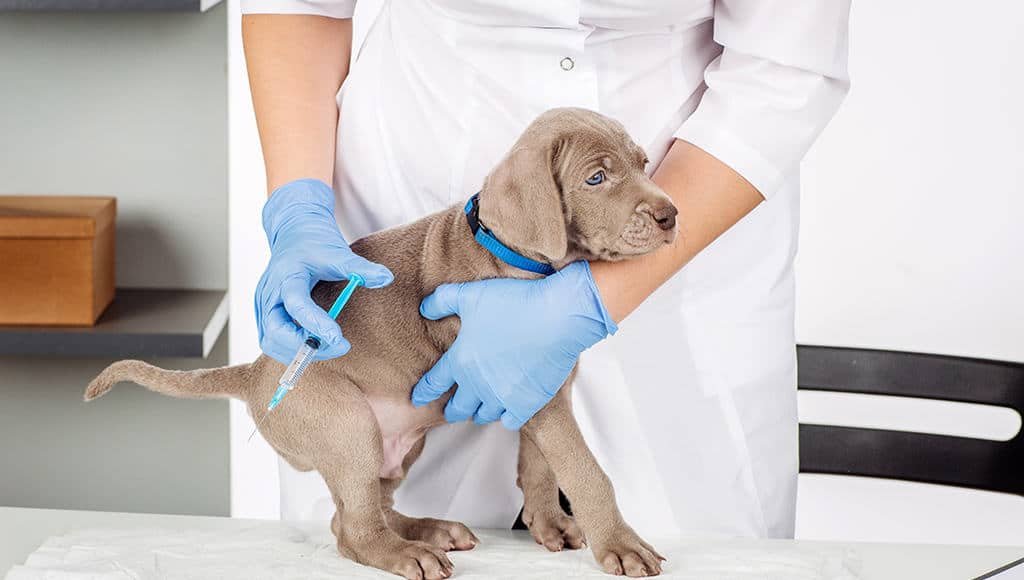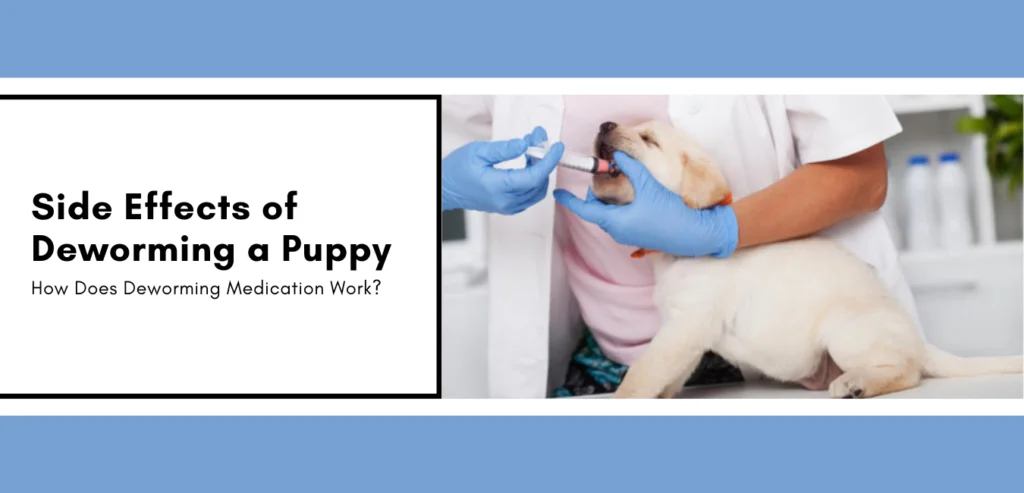Are you wondering, what are the side effects of deworming a puppy? Is your new puppy going to be treated for the first time? Or you may have noticed that your little dog has worm symptoms.
Do not assume that you are careless or that the breeder has placed your puppy in unsanitary conditions.
Although adverse reactions are usually mild, diarrhea is the most common side effect of deworming a puppy.
The reason worms are a concern in puppies is that worms are intestinal parasites because puppies rob important nutrients.
Because the puppy’s body is so small, she will soon become very ill if she is not treated for malnutrition.
The most common puppy parasites are roundworms, which are usually transmitted from mother to child. The side effects of worms in puppies are usually short-lived and temporary.
Side effects of Deworming in puppies
There are different types of worms, as well as, there are some different types of treatments. Insecticide for adult dogs is often in tablet form, but tablets for puppies can be very difficult to swallow, while puppy insecticide is often in liquid form.

According to Canine Weekly, the side effects of deworming in puppies can be a little disturbing because you can often see your puppy leaving the body in the feces.
Symptoms of deworming puppies include small bowel problems such as diarrhea but disappear within a few days. You may notice some behavioral changes as your puppy’s body passes through worms.
Also Read: 7 Reasons to have a fluffy bed for dogs
If you feel sick after your puppy’s worms, look for serious side effects such as blood in his stool, diarrhea lasting more than three days, vomiting, or other signs that your puppy may have an adverse reaction.
Puppy vomiting after deworming
With puppy warming pills, side effects include vomiting. According to Advantage Petcare, it is more likely if your puppy has a large number of worms.
If you put the tablet in, make sure your dog swallows it completely. Tricky dogs sometimes may even try to spit out the tablet after we disappear from the spot.
The side effects of worms are similar in full-grown dogs.
The main difference is that the mature dog’s body can better manage the potential effects of deworming of the drug, so the side effects in a senior dog may not be noticeable or severe.
The best way to prevent the possibility of side effects is for you to maintain the proper dosage of medication.
Puppy drooling after deworming
If your dog takes a dose of the drug fenbendazole, you may notice your puppy drooling after deworming. Fenbendazole is given as a medication to treat a variety of parasites.
In normal doses, you should not notice anything wrong, but you may notice signs of an allergic reaction on the face, such as swelling, itching, rashes, diarrhea, seizures, or shock.
If this happens, seek veterinary care immediately. Fenbendazole can also cause excessive salivation and vomiting.
Dogs, cats, and pets show some odd behaviors after deworming. These include abdominal pain, lack of energy, or loss of appetite. Sometimes, abdominal pain is a sign of medication work. You may also see signs of worms in the vomit;
This means that drugs work to repel parasites. The lack of energy phenomenon should end after 24 hours. Also, a poor appetite should not last too long.
How often should I Deworm my puppy?

Deworming a puppy must be a routine activity at 2, 4, 6, 8, and 12 weeks of age respectively.
After 12 weeks, they should be treated every 3 months.
How long it takes for a puppy to get rid of the worm depends on the type of dewormer used, the age of the puppy, and how it is handled.
Dangerous side effects of deworming the puppy
In rare cases, there are serious side effects to deworming a puppy.
These include:
- Blood in the stool
- Diarrhea or vomiting
- Breathing problems
- Convulsions
- Extreme laziness
These behaviors guarantee an immediate visit to the veterinarian.
Always consult your veterinarian before changing your pet’s diet, medications, or physical activity routines.

